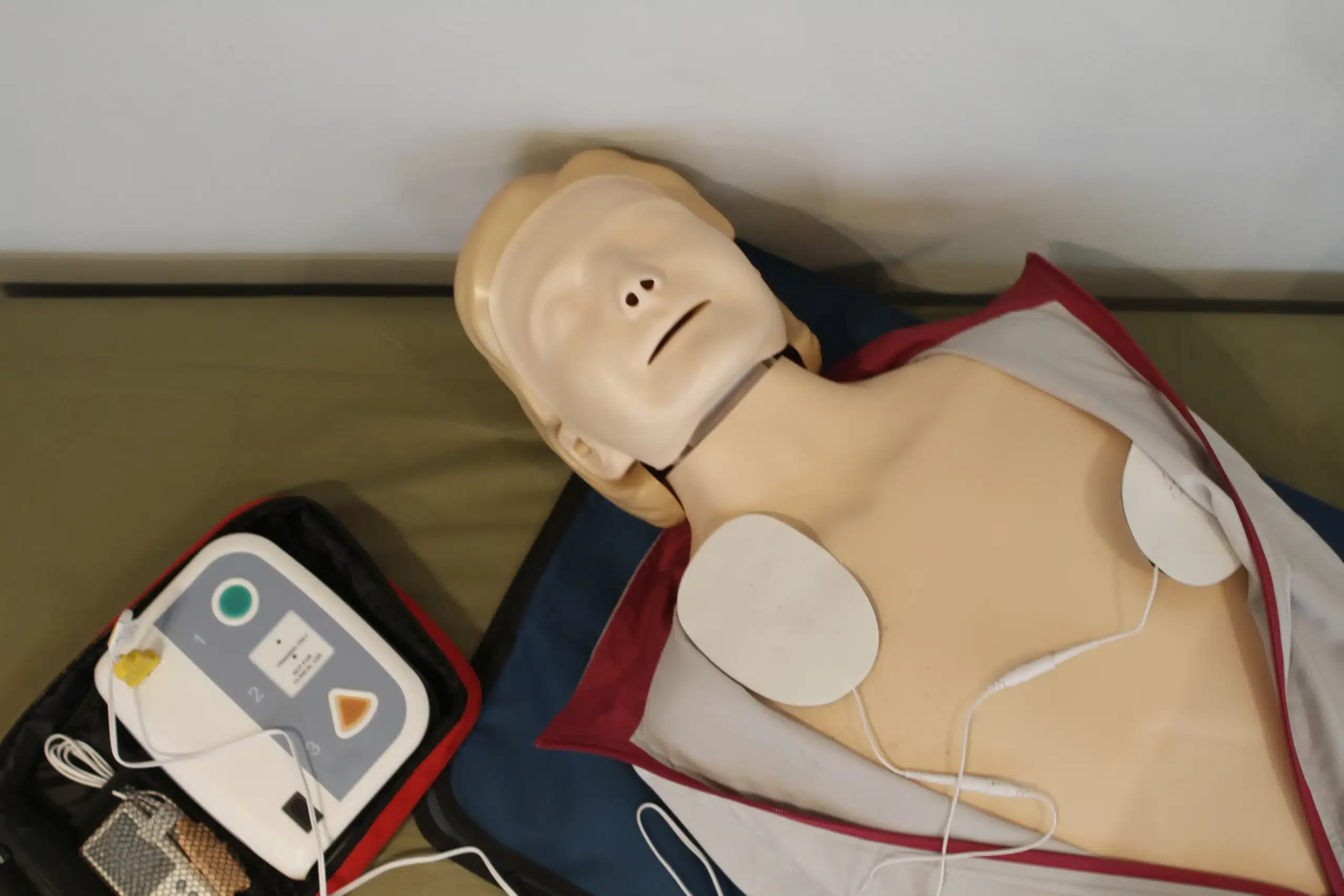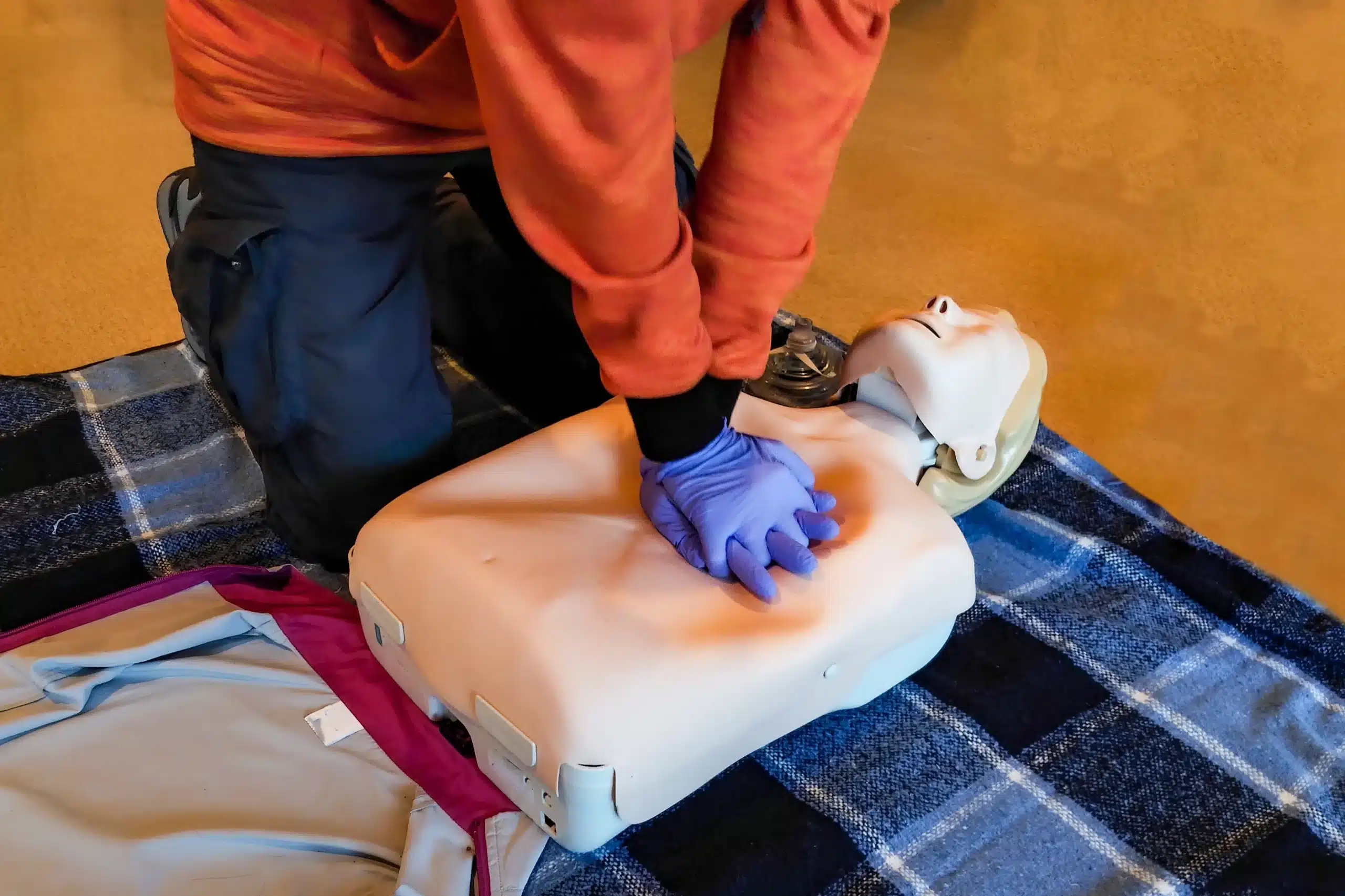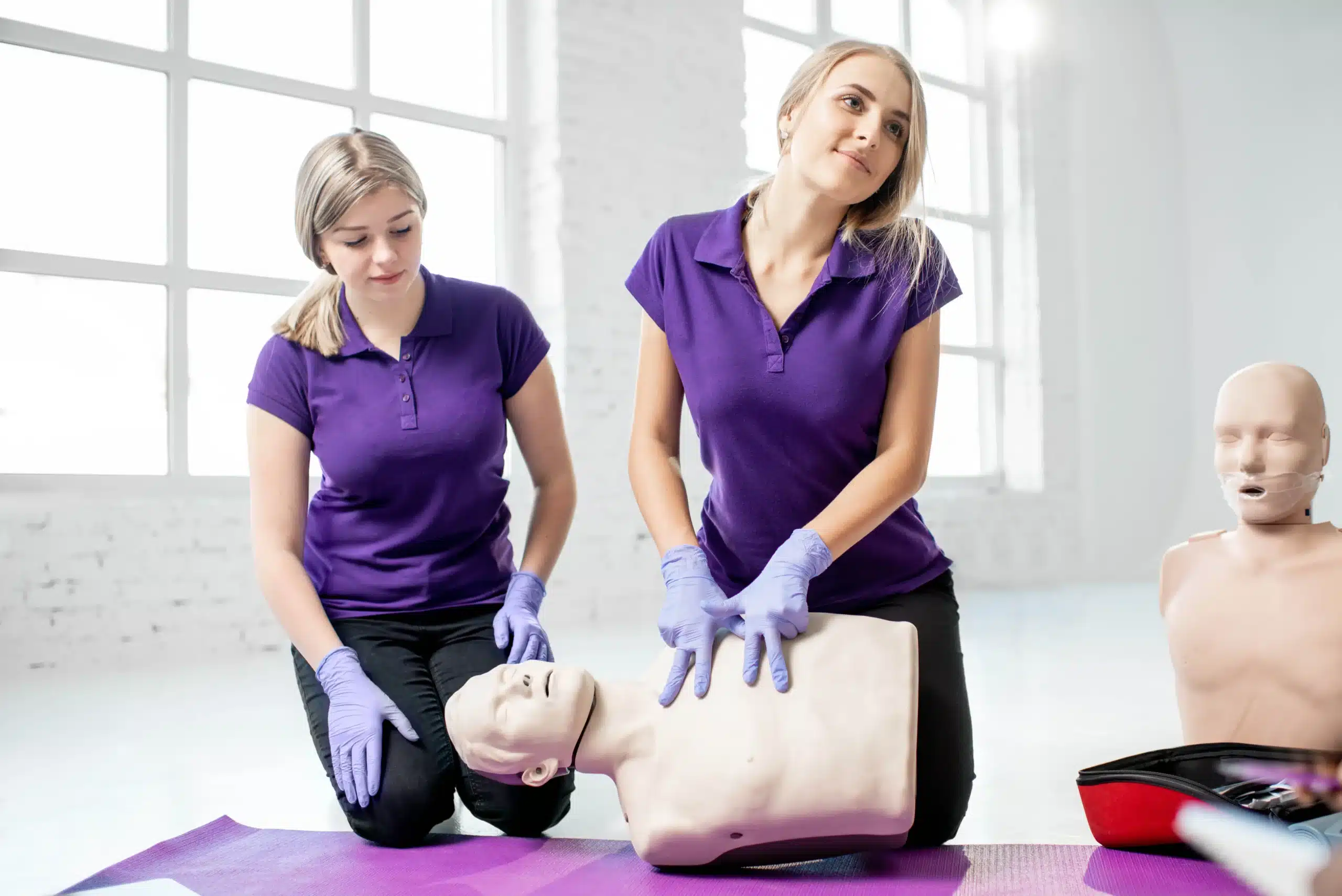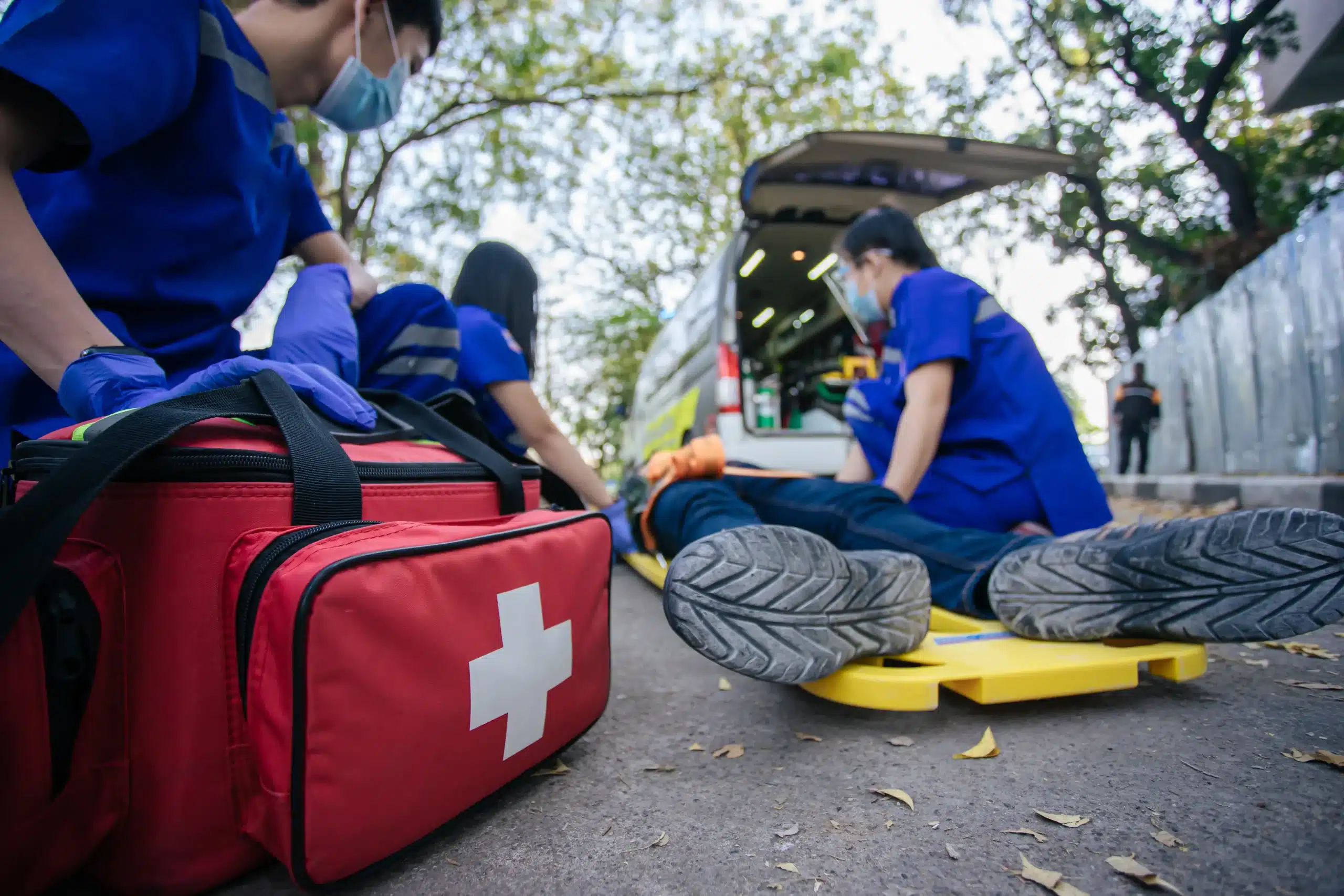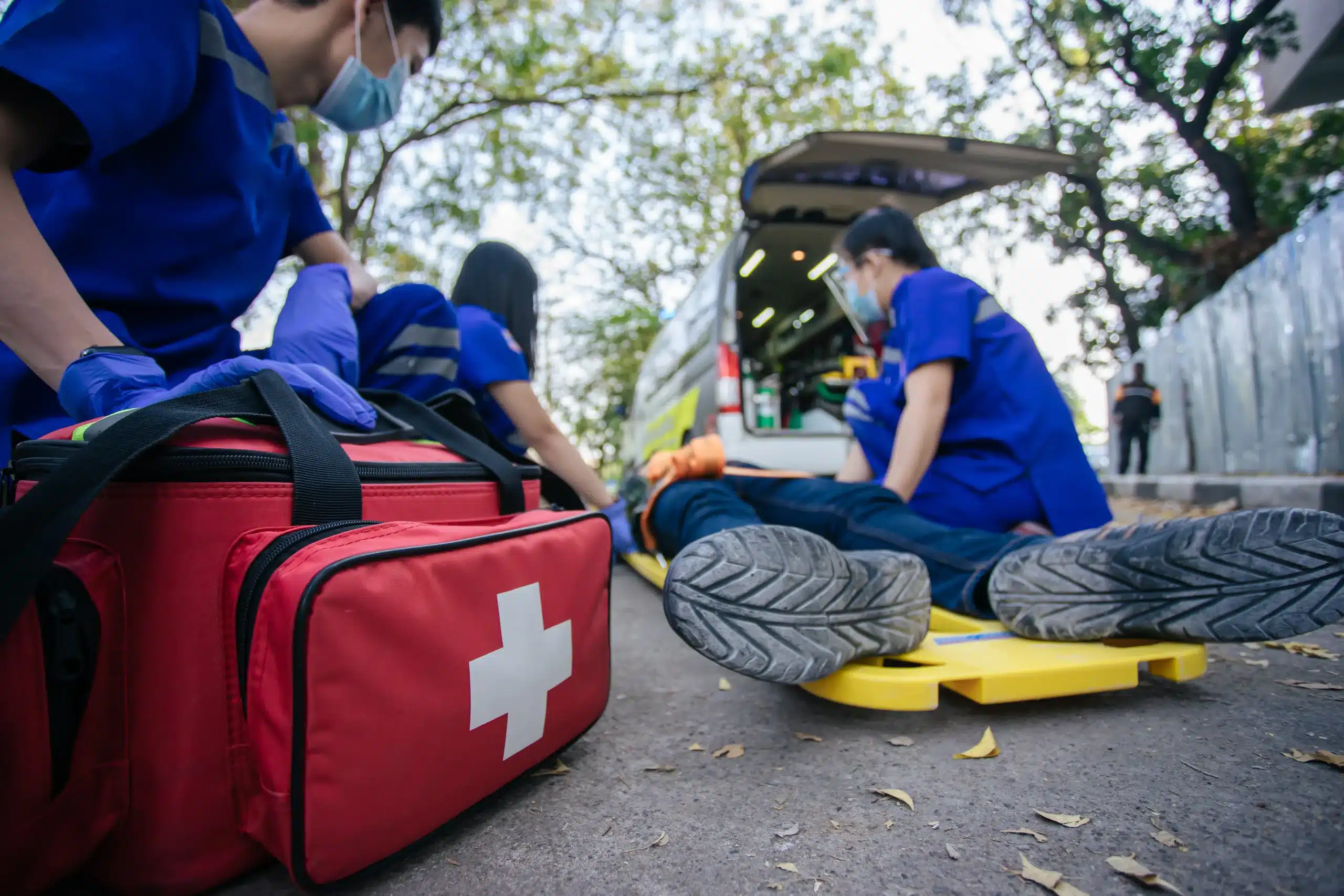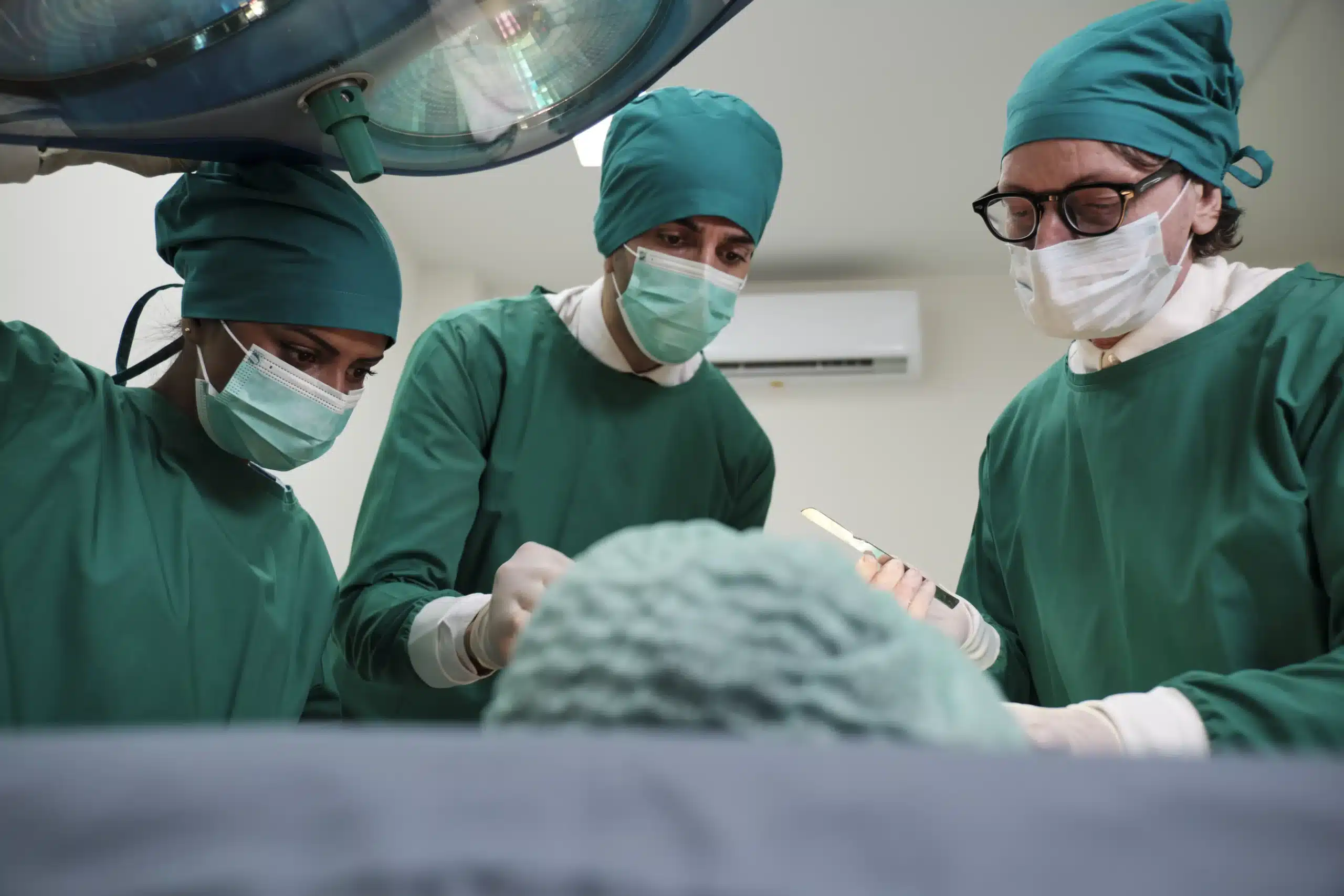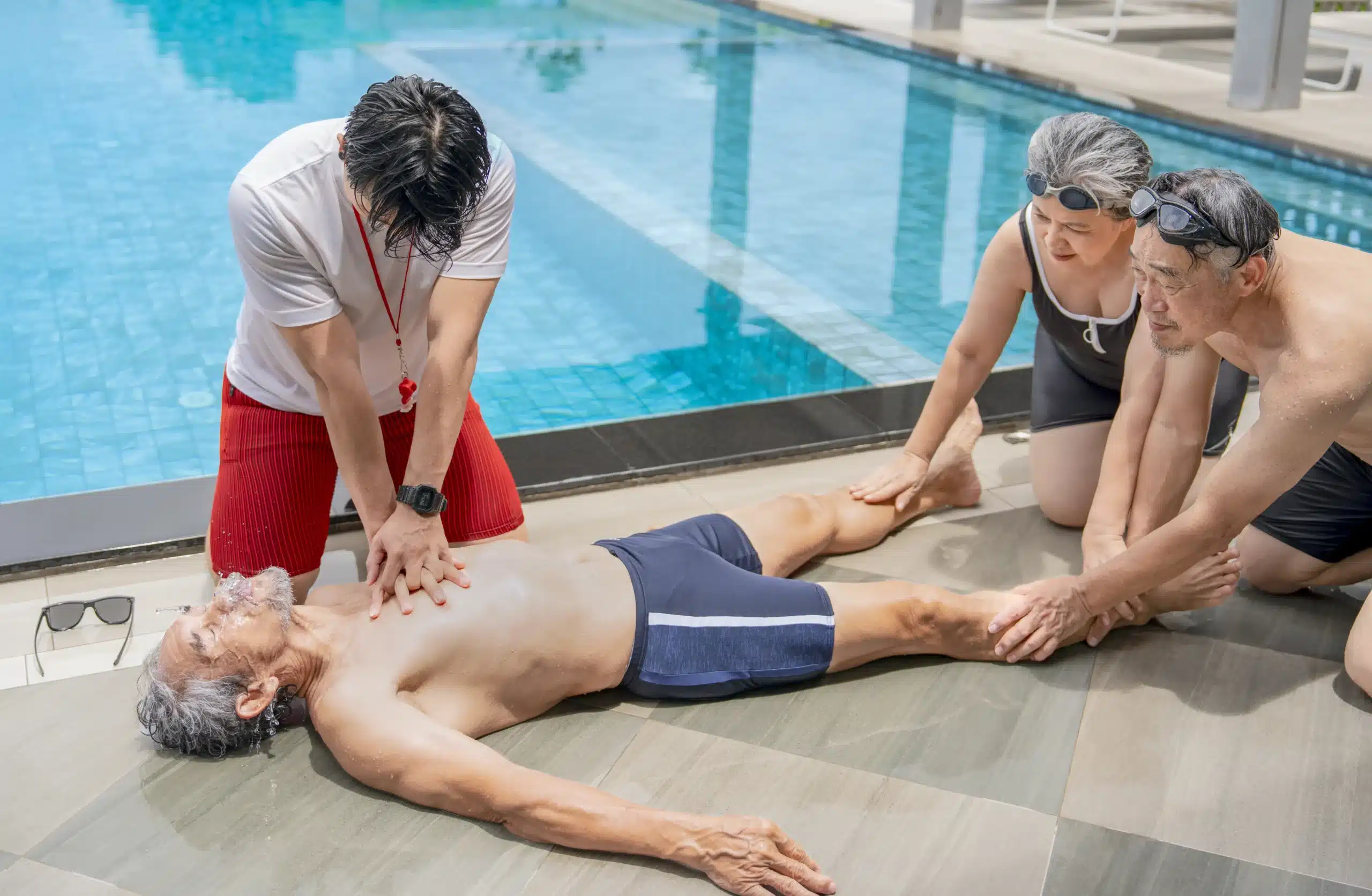Medical emergencies can happen anytime, anywhere. Being equipped to handle these situations is not just a valuable skill—it can be life-saving. This article serves as your complete guide to BLS certification in San Jose. We’ll cover what BLS is, why it’s important, and how it differs from standard CPR. You’ll learn about the skills you’ll acquire, the different training options available in San Jose, and how BLS certification can open doors in your career. We’ll also address common misconceptions about BLS and provide practical tips for preparing for your course.
Key Takeaways
- BLS certification empowers you to save lives: It provides essential skills applicable to various emergencies, valuable for both healthcare professionals and anyone who wants to be prepared. Find convenient, affordable options to fit your needs.
- Choose a BLS program that works for you: Look for accredited programs with experienced instructors, flexible scheduling, and ongoing support. Consider factors like cost, learning format (in-person, online, or blended), and available resources.
- Don’t hesitate to get certified: BLS is attainable and valuable for anyone who wants to make a difference in an emergency. Explore the various learning options and resources available to find the best fit for your lifestyle and goals.
What is BLS Certification?
Basic Life Support (BLS) certification equips you with the essential skills to respond to life-threatening emergencies like cardiac arrest, respiratory distress, and choking. It’s a crucial training program for healthcare providers, first responders, and anyone who wants to be prepared to help in a crisis. BLS goes beyond basic CPR, covering techniques for airway management and using an AED.
Think of BLS as your comprehensive toolkit for emergency situations. The American Heart Association BLS course covers high-quality CPR for adults, children, and infants, along with critical skills like relieving choking and using an AED. This training ensures you can confidently provide care while waiting for professional medical help. It emphasizes teamwork, effective chest compressions, and maintaining blood flow to the brain and heart. Regular RQI classes are also vital for keeping your skills sharp and staying current with the latest guidelines. Because BLS certification focuses on teamwork and immediate intervention, it’s invaluable in any medical emergency.
Find Top BLS Certification Providers in San Jose
Finding the right BLS certification provider is crucial for a positive and effective learning experience. Here are some reputable options in San Jose:
Santa Clara CPR Classes
Santa Clara CPR Classes specializes in American Heart Association certification courses, including BLS, ACLS, PALS, and First Aid. They prioritize convenient schedules and easy registration. Their low-price guarantee makes them a practical choice. Explore their BLS certification course for more details. They also offer other certifications like ACLS and RQI. Reach out through their contact page with any questions.
American Red Cross
The American Red Cross is a well-known provider of BLS certification and renewal training. Their San Jose location offers flexible course schedules, with some as short as 4.5 hours. Red Cross BLS training covers CPR, AED use, and how to clear obstructed airways for adults, children, and infants.
American Heart Association
CPR Training Center offers the American Heart Association BLS CPR Provider class in San Jose. This 3.5-hour course provides same-day American Heart Association BLS certification, valid for two years.
Safety Training Seminars
Safety Training Seminars offers a range of American Heart Association (AHA) certified courses, including BLS, ACLS, and PALS. They focus on providing high-quality training aligned with the latest AHA guidelines. Learn more about their BLS, ACLS, and PALS training.
HeartShare Training Services
Lifework (formerly HeartShare Training) offers CPR and First Aid certification courses in San Jose and the Bay Area. Visit their site for details on their CPR, BLS, and other certification courses.
Explore BLS Course Formats and Duration
Finding the right BLS course format is key to successfully completing your training. Let’s explore the most common options: in-person, online, and blended learning. Each has its own advantages, so consider what best suits your learning style and schedule.
In-Person Training
Traditional in-person BLS training offers a hands-on learning experience. You’ll work directly with a certified instructor and other students, practicing skills on mannequins and participating in real-time scenarios. This format provides immediate feedback and allows you to ask questions as they arise. In-person classes often take a half-day, such as the 4.5-hour BLS certification courses offered by the American Red Cross. Check with your chosen provider, like Santa Clara CPR Classes, for specific class times and daily availability to accommodate busy schedules.
Online Options
If you prefer flexibility, an online BLS course might be a good fit. Online training allows you to learn at your own pace, fitting the coursework around your existing commitments. Reputable providers like ACLS.com offer accredited online BLS certification recognized by organizations like the American Dental Association (ADA) and the American Medical Association (AMA). Make sure to choose a program that meets the requirements of your profession and licensing board.
Blended Learning
Blended learning combines the best of both worlds. You’ll complete the cognitive portion of the course online, then attend an in-person skills session to practice and demonstrate your proficiency. Programs like HeartCode BLS offer this hybrid approach. More information on HeartCode BLS can be found on San Jose CPR Certification’s blog. This format offers flexibility while still ensuring you receive the hands-on training necessary for real-life emergencies. It’s a great option for those who want the convenience of online learning with the reinforcement of in-person instruction.
Understand BLS Certification Costs & Value in San Jose
Getting BLS certified is a smart investment in your skills and career. But naturally, you’re probably wondering about the costs. Let’s break down the typical price range for BLS certification in San Jose and discuss the factors influencing it. We’ll also explore ways to make training more affordable and highlight why the value of BLS certification goes beyond the initial price tag.
Average Price Range
In San Jose, the cost of a BLS certification course typically falls around $70. For example, you can find standard American Heart Association BLS Provider courses in the area within this price range. Remember that prices can vary slightly depending on the training center and specific course offerings. It’s always a good idea to check with a few different providers, including Santa Clara CPR Classes, to compare options.
Factors Affecting Cost
Several factors can influence the final cost of your BLS certification. Course format (in-person, blended, or online) can play a role, as can the inclusion of any supplementary materials or resources. While cost is a valid consideration, remember that BLS training equips you with life-saving skills. This knowledge empowers you to respond effectively during emergencies—a benefit that extends far beyond the initial investment.
Group Discounts & Special Offers
If you’re training with a group of colleagues or friends, ask about group discounts. Many training centers offer reduced rates for group registrations, making it more economical for everyone to get certified together. Also, keep an eye out for special promotions or discounts that can make the training more accessible.
Weigh Long-Term Benefits Against Initial Investment
Think of BLS certification as an investment, not just an expense. The ability to provide immediate care during a medical emergency is invaluable. This training can significantly improve outcomes, especially in those first few minutes before professional medical help arrives. Whether you’re a healthcare professional or someone who wants to be prepared for anything, the long-term benefits of BLS certification far outweigh the initial cost. For healthcare providers, it’s often a requirement for employment and career advancement. For everyone, it’s the confidence of knowing you can make a difference when it matters most.
Know What to Expect During BLS Training
Getting ready for your BLS training? Here’s a preview of what you’ll cover, from essential skills to the certification process. Understanding what lies ahead will help you feel prepared and confident going into your training.
Key Skills You’ll Learn
BLS certification equips you with fundamental life-saving techniques. You’ll learn how to use an automated external defibrillator (AED), a critical device for restoring a normal heart rhythm. You’ll also develop skills in basic airway management, ensuring effective ventilation, and learn techniques to assist someone who is choking. These core skills are vital for responding to various medical emergencies. This foundational knowledge is crucial for anyone in a healthcare role and a valuable asset for anyone who wants to be prepared to help in a crisis.
Hands-On Practice
BLS training isn’t just about theory—it’s about practical application. You’ll participate in extensive hands-on practice to build your confidence and competence in performing life-saving procedures. This includes CPR, using an AED, and managing airways. These simulations create a safe learning environment where you can refine your technique and develop the muscle memory needed to react quickly and effectively under pressure. You’ll find BLS courses available that provide this crucial hands-on component.
Skills Assessment & Certification
Earning your BLS certification involves demonstrating your proficiency. You’ll complete a hands-on skills demonstration and a written exam, typically requiring a minimum passing score of 84%. This thorough assessment ensures you’ve grasped both the theoretical knowledge and practical skills necessary to provide effective BLS in real-world situations. Once you successfully complete these requirements, you’ll receive your BLS certification, validating your skills and knowledge.
Check BLS Certification Prerequisites
Before signing up for a Basic Life Support (BLS) certification course, it’s helpful to understand what’s expected. While the prerequisites aren’t extensive, knowing what to expect makes for a smoother experience.
One key aspect is understanding who BLS certification is for. It’s primarily designed for healthcare providers like doctors, nurses, and EMTs, along with first responders such as firefighters and police officers. The training equips these professionals with the skills to handle emergencies. The American Red Cross offers more information on who can benefit from BLS training.
You’ll also need the right course materials. Most BLS courses require a BLS Provider Manual, usually available as an ebook or paperback. This manual is essential for learning the content and preparing for the exam. Check with your chosen provider, like the CPR Training Center, for details on required materials.
The BLS certification process involves a hands-on skills demonstration and a written exam. You’ll need to pass both to receive your certification, ensuring you have a solid grasp of the material and can perform BLS in real-world situations.
BLS certifications are typically valid for two years. Keep track of your expiration date, especially if BLS certification is a job requirement. The Red Cross offers details on BLS certification and renewal. If your certification does expire, you can usually recertify within a short grace period. This allows healthcare professionals to easily maintain their skills and credentials.
Discover the Career Impact of BLS Certification
BLS certification, especially from a trusted provider like Santa Clara CPR Classes, can significantly impact your career, particularly in healthcare. Whether you’re a seasoned professional or just starting out, understanding the benefits of BLS can help you make informed decisions about your future.
Healthcare Job Opportunities
BLS certification opens doors to a wide range of healthcare roles. It’s a foundational requirement for many positions, including registered nurses, paramedics, emergency medical technicians, and other healthcare providers. Many employers view this certification as a demonstration of your commitment to patient safety and high-quality care, giving you a competitive edge in the job market.
Meet Regulatory Requirements
In many healthcare settings, BLS certification isn’t just recommended—it’s mandatory. Regulatory bodies and licensing organizations often require healthcare professionals to maintain valid BLS credentials to ensure practitioners possess the skills to respond effectively to medical emergencies. BLS training covers essential life-saving procedures, including CPR, using an AED, and managing airways.
Advance Your Career
BLS certification can be a stepping stone to career advancement. It shows a commitment to professional development and a willingness to learn new skills. This can be particularly valuable if you’re aiming for a more specialized or senior role. For community health workers, BLS training provides a crucial first line of defense in emergencies, enhancing their ability to serve their communities.
Gain Confidence in Emergencies
Beyond the practical skills, BLS certification instills confidence. Knowing you can handle a medical crisis allows you to act quickly and decisively in stressful situations. This confidence translates to improved patient outcomes and a greater sense of professional competence. BLS training equips healthcare personnel to perform life-saving procedures with confidence.
Choose the Right BLS Program in San Jose
Finding the right BLS program in San Jose requires careful consideration. Don’t just pick the first one you see—evaluate your options to ensure you receive high-quality training that fits your needs.
Accreditation & Recognition
First, confirm the program’s accreditation and recognition. A program accredited by a respected organization like the American Heart Association (AHA) ensures the curriculum adheres to the latest guidelines. Santa Clara CPR Classes offers the AHA BLS CPR Provider course, providing a nationally recognized certification valid for two years. This accreditation is crucial for career advancement and demonstrates a commitment to high standards.
Instructor Qualifications
The quality of instruction significantly impacts your learning. Look for programs with experienced, certified instructors passionate about teaching. Instructors should possess current certifications and a deep understanding of BLS principles. Santa Clara CPR Classes prioritizes instructor qualifications, ensuring courses are led by certified professionals dedicated to providing comprehensive training.
Class Availability & Flexibility
A rigid schedule can make fitting training into your life difficult. Seek programs offering flexible scheduling, including weekend and evening classes. Various time slots can make a world of difference, especially if you’re juggling work and personal commitments. Consider whether online or blended learning options, like our RQI classes, might better suit your lifestyle.
Post-Certification Support
Think beyond the initial certification. High-quality programs often provide resources and support after you complete the course. This might include access to refresher materials, updates on new guidelines, or assistance with recertification. Continued learning and staying up-to-date are essential for providing effective care. Contact us at Santa Clara CPR Classes to learn more about our commitment to ongoing support. We also offer a Low Price Guarantee, ensuring you receive excellent value.
Debunk Common BLS Certification Myths
Let’s clear up some common misconceptions about BLS certification. These myths can prevent people from getting this life-saving training.
“Only for Healthcare Professionals”
Many assume BLS certification is just for doctors and nurses. While it’s definitely a cornerstone of their training, BLS skills like using an AED, basic airway management, and helping someone who is choking are valuable for anyone. Think about teachers, coaches, parents, or even babysitters—anyone could find themselves in a situation where these skills are needed. Knowing BLS can empower you to help in an emergency. Learn more about how it can benefit you through our BLS certification course.
“Too Time-Consuming or Expensive”
Some people hesitate to pursue BLS certification because they think it will take too much time or money. While there is a time commitment involved, many affordable options fit busy schedules. Consider the long-term value: BLS training equips you with skills that can save a life. Check out our flexible class schedules and our low price guarantee. We make it easy to find a course that works for you.
“Online Courses Aren’t Credible”
It’s true that not all online courses are created equal. However, many accredited organizations offer high-quality online BLS certification courses that meet the same standards as in-person classes. These courses can be a convenient way to learn the material, especially for those with busy schedules or limited access to in-person training. Explore our RQI classes for a flexible online option.
“One-Time Requirement”
BLS certification isn’t a one-and-done deal. Like many certifications, it needs to be renewed every two years. This ensures you stay up-to-date on the latest guidelines and techniques in life-saving procedures. Regular renewal helps you maintain those crucial skills so you can act confidently in an emergency. Contact us to learn more about renewal options.
Prepare for Your BLS Course
Getting ready for your BLS course doesn’t have to be stressful. With a little preparation, you can walk into class feeling confident and ready to learn. This section covers everything you need to know beforehand, from gathering your study materials to planning for your recertification down the road.
Study Materials & Resources
Having the right resources makes for a smoother learning experience. The American Heart Association recommends the BLS Provider Manual, available as an eBook or paperback. This manual is your guide for understanding the core concepts of Basic Life Support. Check with your chosen training center—like Santa Clara CPR Classes—as some may require specific materials or offer supplemental study guides.
Tips for Success
BLS courses aren’t just about memorization. They focus on practical application and critical thinking. Come prepared to actively participate and engage in discussions. Hands-on practice is a major part of the training, so be ready to perform BLS techniques. You’ll also need to pass a written exam, often with a minimum score of 84%, to obtain your BLS certification.
Maintain Your Certification
Your BLS certification is valid for two years, after which you’ll need to recertify. The American Red Cross offers a blended learning recertification option, which combines online learning with in-person skills practice and testing. Knowing your recertification options ahead of time makes it easier to stay current and prepared for any emergency. Mark your calendar and plan for your recertification course to keep your skills sharp.
Related Articles
- BLS Certification in Santa Clara: A Guide for Healthcare Providers – Santa Clara CPR Classes
- Online BLS Classes in San Jose: A Complete Guide – Santa Clara CPR Classes
- BLS Courses in Santa Clara: Your Complete Guide – Santa Clara CPR Classes
- CPR Certification in San Jose: Your Complete Guide – Santa Clara CPR Classes
Frequently Asked Questions
Is BLS certification the same as CPR certification? BLS certification is more comprehensive than general CPR training. While CPR is a core component of BLS, BLS also covers other essential life-saving techniques like using an AED and relieving choking. It provides a broader skill set for responding to medical emergencies.
How long does BLS certification last, and how do I renew it? BLS certification is typically valid for two years. You’ll need to take a recertification course before it expires to maintain your credentials. Many providers offer recertification courses, often in a blended learning format that combines online coursework with in-person skills practice and testing.
What if my BLS certification expires? If your BLS certification expires, you’ll need to retake a full BLS certification course to regain your credentials. It’s best to plan and sign up for a recertification course before your current certification lapses to avoid any gaps in your qualifications.
What can I expect during a BLS course? Expect a combination of classroom instruction, hands-on practice, and skills assessment. You’ll learn essential life-saving techniques, practice them on mannequins, and demonstrate your proficiency through a skills test and a written exam.
How much does BLS certification cost in San Jose? The cost of BLS certification in San Jose varies depending on the training provider and the course format. However, you can generally expect to find courses in the $70 range. Some providers offer group discounts or special promotions, so it’s always a good idea to inquire about potential cost savings.
